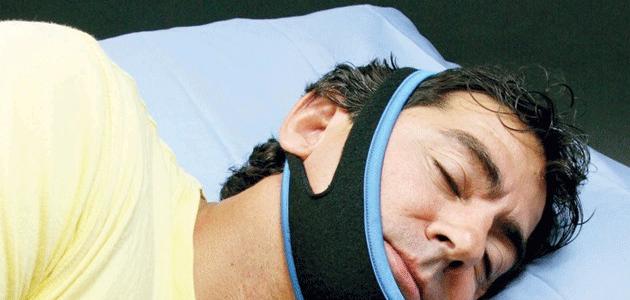What are the causes of constant dizziness?
Dizziness is linked to many causes; An individual may suffer from dizziness as a result of a certain medical condition, or because of the surrounding environment, or because of taking a medication. Although recurrent dizziness may greatly affect a person’s life, it is rarely associated with a serious medical condition, and below we review the most important causes of dizziness. Continuous:
Vertigo
Vertigo can be defined as an individual's false feeling that there is movement around him, so he feels that everything around him is moving and rotating. This occurs when there are disturbances in the inner ear, so the brain receives signals from the inner ear that do not match the signals received by the eyes and sensory nerves, so vertigo occurs. It is the brain's way of resolving this confusion or mismatch between signals. Below is an explanation of the three most important causes of vertigo:
- Benign paroxysmal positional vertigo
(Benign paroxysmal positional vertigo) It is the most common cause of vertigo, and this condition causes the individual to feel as if he is spinning or moving. The sensation is intense but comes for a short period, and this feeling comes when there is a rapid change in the movement of the head; Such as when turning over in bed, or when sitting, or when exposed to a blow to the head.
- Meniere's disease
(Meniere's disease) Its symptoms are sudden bouts of dizziness, which may last for several hours, with fluctuating hearing loss, ringing in the ear, and a feeling of blockage in the ear. Meniere's disease occurs due to excessive accumulation of fluid in the inner ear.
Read also:Ear decay- infection
A viral infection may cause vestibular neuritis, which causes severe dizziness. Some individuals may also experience sudden hearing loss with the infection, a condition known as labyrinthitis.
motion sickness
Motion sickness is one of the disorders of the inner ear. It usually occurs when riding a means of transportation, such as a car, boat, plane, or train, and disappears as soon as you get off the vehicle and place your feet on stable ground. Motion sickness occurs when the organs are sent Sensory mixed messages to the brain, causing dizziness, light-headedness, nausea, and may have some.
sister
Migraine or migraine patients suffer from recurring attacks of moderate to severe pain, which usually begins on one side of the head. Symptoms last between 4 hours and 3 days. Symptoms worsen when engaging in certain physical activity, when moving, or hearing sounds. Or when exposed to light. The headache may also be accompanied by nausea or vomiting.
Reduction of Blood pressure
Orthostatic hypotension may be one of the reasons for feeling dizzy for a short time and feeling weak. In this case, blood pressure drops quickly when the body position is changed from sitting to standing directly, resulting in a decrease in systolic blood pressure. Which represents the top number in the blood pressure reading.
Read also:Ear infection in children
Cardiovascular disease
Some heart and arterial diseases may cause poor blood circulation, causing dizziness. Such as heart muscle weakness (Cardiomyopathy), heart arrhythmia, heart attack, or transient ischemic attack, as the blood volume decreases in these cases, which reduces blood flow to the brain and inner ear. Cardiovascular disease is accompanied by other symptoms and signs, such as:
- Arrhythmia.
- Feeling of tightness in the chest.
- shortness of breath.
- Excess fluid accumulation in the arms, legs, or feet.
- Persistent cough.
- Nausea or vomiting, or both.
- Exhaustion and extreme fatigue.
Iron deficiency
Iron deficiency may cause anemia or anemia. Which is represented by the lack of a sufficient amount of oxygen-rich blood. Iron deficiency can be detected through a routine blood test, and the severity of the symptoms associated with iron deficiency varies. The individual may not feel any symptoms in simple cases, while some clear symptoms may appear in other cases, including the following:
- Vertigo or dizziness.
- Exhaustion and extreme fatigue.
- pale skin;
- general weakness.
- Breathlessness.
- Head heaviness or imbalance.
Read also:Treatment of ear fungus
Low blood sugar
Individuals with diabetes may suffer from low blood sugar (hypoglycemia), so they should check their blood sugar level regularly, as hypoglycemia may cause many symptoms. Such as feeling dizzy, and other symptoms that we will mention later. Some healthy individuals may also suffer from low blood sugar in rare cases. The following are the most important causes of low blood sugar:
- Not eating, or skipping meals.
- Taking some types of medications; Such as insulin or aspirin.
- Suffering from hormonal disorders.
- drinking alcohol;
Symptoms and signs of low blood sugar include the following:
- Rapid or irregular heartbeat.
- Fatigue and fatigue.
- A tingling or numbness sensation in the lips, tongue, or cheeks.
- feeling hungry
- Increased sweating.
- pale skin;
- shivering;
- Anxiety, irritation and confusion.
Autoimmune inner ear diseases
Autoimmune inner ear disease (AIED) is a condition in which the immune system mistakenly attacks the inner ear. This may cause hearing loss in one or both ears. The symptoms of this condition are very similar to Symptoms of an ear infection: Symptoms include the following:
- Vertigo or dizziness.
- Loss of balance and coordination of movement.
- Tinnitus.
In the context of talking about the similarity of symptoms, the doctor will need to diagnose the condition accurately. By knowing the individual's medical history, conducting a physical examination, and looking for any other symptoms. For example, people with autoimmune inner ear diseases suffer from other autoimmune diseases that affect other parts of the body.
Stress or stress
Stress or constant psychological pressure may cause suffering from several health problems. Such as diabetes, heart disease, depression, anxiety, and suppression of the immune system. The brain responds to stress by secreting certain hormones, which in turn affect the cardiovascular system and the respiratory system. These hormones cause the blood vessels to narrow, increase the acceleration of the heartbeat, and cause rapid breathing. Superficially, this causes a feeling of dizziness or heaviness in the head.
worry
Dizziness is one of the common symptoms associated with anxiety, but the relationship between anxiety and dizziness may vary among people. Some may suffer from sudden dizziness that triggers an anxiety attack, while dizziness may be the result of anxiety attacks in others. For example, some may feel anxious when going through certain situations; Before exams, or in difficult emotional situations, symptoms include dizziness, nausea, and confusion.
pharmaceutical
Using some types of medications may cause dizziness. As a side effect of the medication, examples of these medications include the following:
- Sedatives.
- some antibiotics; Such as Gentamicin and Streptomycin.
- High blood pressure medications.
- Antiepileptic drugs.
- Antidepressant medications.
Neurological diseases
Some neurological diseases cause a gradual loss of balance; Such as Parkinson's disease, or multiple sclerosis, and this may result in the individual feeling dizzy.
Carbon monoxide poisoning
Carbon monoxide poisoning causes flu-like symptoms, including dizziness, headache, upset stomach, general weakness, chest pain, vomiting, and confusion or disorientation.
Dehydration and hyperthermia
Dizziness may occur on hot weather days when engaging in physical activities outside and not drinking sufficient amounts of fluids. The individual becomes dizzy due to dehydration or hyperthermia, and it is worth noting that individuals who take some types of heart medications are more susceptible to dizziness in this case.
Reasons to see a doctor
You should consult a doctor if dizzy spells recur, or if you suffer from sudden dizziness accompanied by other symptoms that indicate the presence of a health problem that requires immediate medical care, such as:
- Head injury.
- headache;
- Constant vomiting.
- Neck pain.
- Numbness or numbness.
- hearing loss.
- blurred vision
- High temperature.
- pain in chest.
- Unconsciousness.
- difficulty speaking
- Drooping of the eye or mouth.









